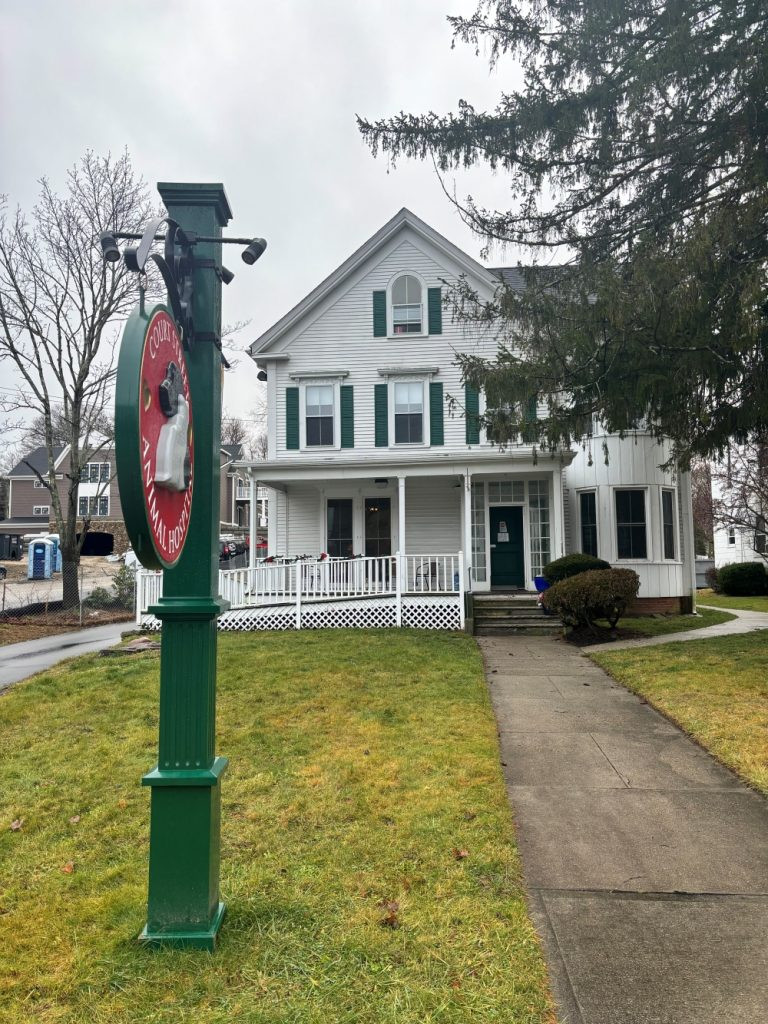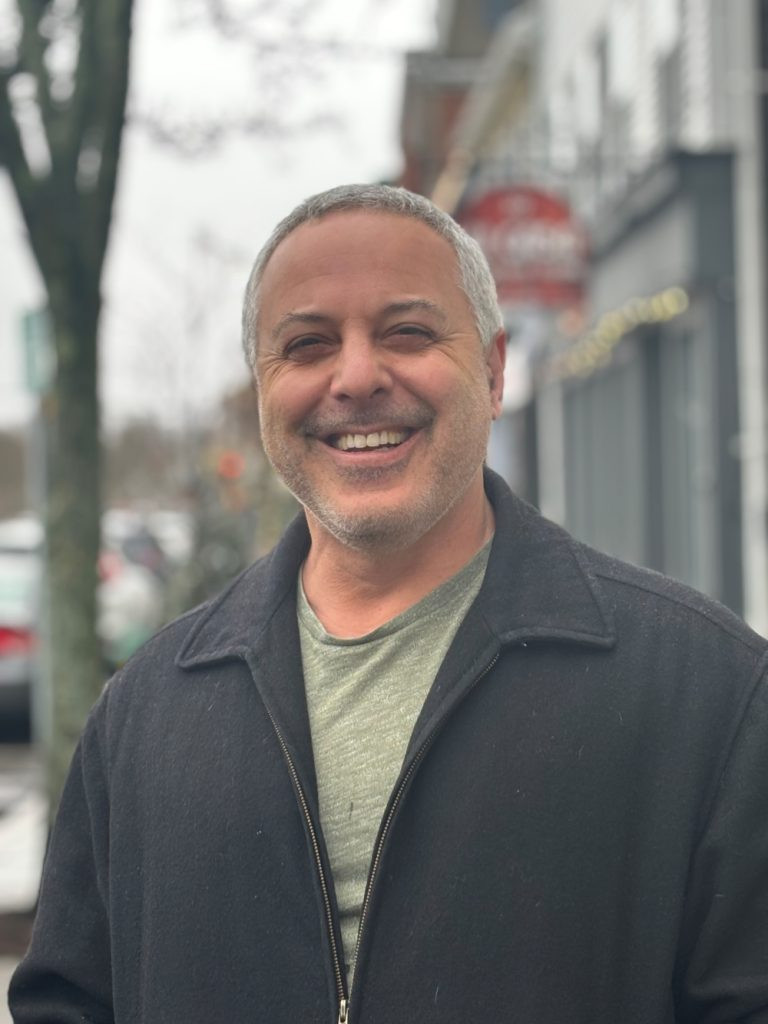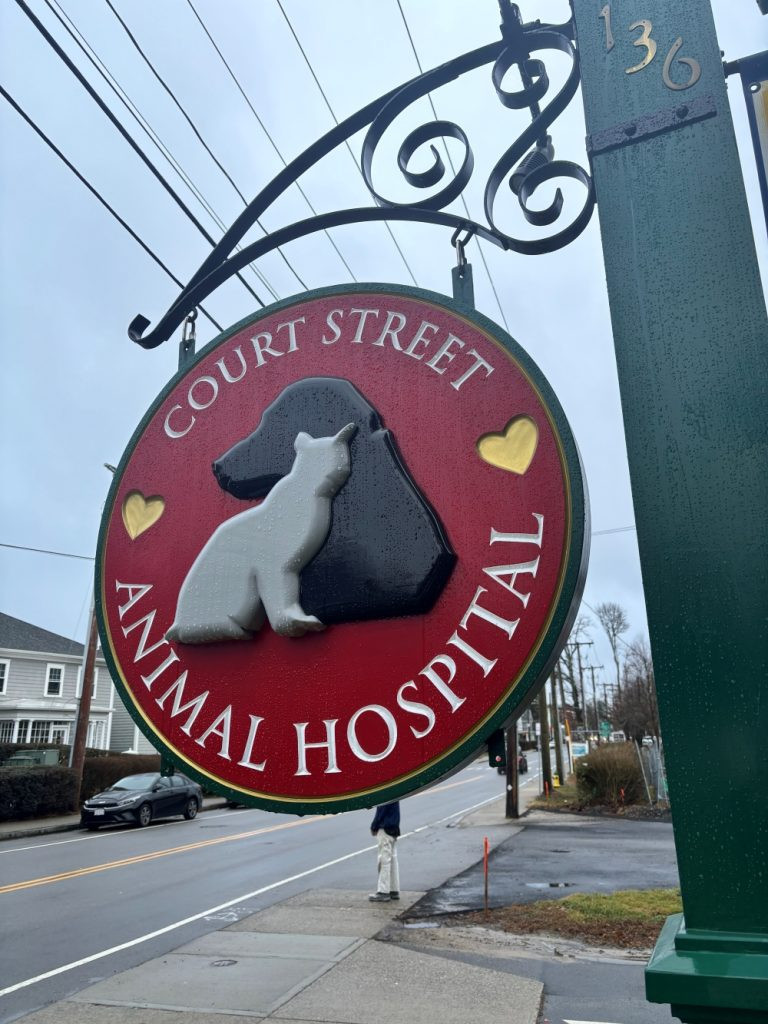When grief struck during the isolating weeks of the Covid lockdown with the loss of our golden doodle, it was Norm Stillman who offered solace. At that time, he was the owner of Court Street Animal Hospital, a Plymouth institution he established in April 2005 before selling in December 2020. Dr. Stillman dedicated himself to pets and their families, known for his exceptional skill and deep well of empathy. On that somber day in April 2020, Dr. Stillman, despite recovering from Achilles surgery and wearing a leg cast, met us in the clinic parking lot with his wife, Diane. He offered comfort, reminding us of our dog Licorice’s long and loved life, stating, “Licorice won,” offering a perspective that eased our pain. This profound compassion was a hallmark of Dr. Stillman’s time at Court Street Animal Hospital, a comfort he extended to countless pet owners.
More than a year has passed since Dr. Stillman officially stepped away from Court Street Animal Hospital, embarking on a sabbatical at 53 years old. His reasons for this departure are layered and significant, leading him to a period of reflection on his career and future path amidst a pet care industry facing considerable challenges. The demand for veterinary services is surging. Pet ownership has increased dramatically since the pandemic, with two-thirds of US households now including at least one pet. Correspondingly, spending on pet care is escalating, reaching nearly $137 billion in 2022, an almost 11 percent increase from the previous year.
However, the veterinary profession is struggling to keep pace with this growing need. The United States has a limited number of veterinary schools, less than three dozen nationwide. Veterinarians are facing immense pressure, often feeling overwhelmed, underpaid, and burdened by the significant debt accumulated during their extensive medical training. The demanding workload, coupled with rising operational costs, takes a toll. Adding to these pressures is the emotional weight of routinely dealing with euthanasia, a grim but inherent aspect of caring for animals with shorter lifespans than humans.
These factors contribute to a concerning trend of mental health challenges within the veterinary community. A study detailed in Psychology Today revealed that approximately 80 percent of veterinarians experience clinical depression at some point in their careers, and half express dissatisfaction with their chosen profession. Alarmingly, a 2019 CDC study indicated that veterinarians are two to four times more likely to die by suicide compared to the general population.
In a comprehensive interview, Dr. Stillman openly discussed his reasons for stepping back from regular practice. He also shared his deep appreciation for the privilege of caring for animals and the profound fulfillment derived from this work.
From Human Medicine to Animal Care: An Unexpected Path
While many veterinarians recall a lifelong aspiration to work with animals, Dr. Stillman’s path was less direct. Growing up in Tucson, Arizona, and later Auburn, Massachusetts, he was surrounded by medicine. Both his parents were physicians, subtly guiding him towards a career in human medicine.
“My parents never officially said to me, ‘You’re going to be a doctor.’ But our dinnertime conversation was always medical stuff. We hung out with other doctors. My friends were the kids of other doctors. It didn’t even seem like a decision. It seemed like a natural thing to do,” Dr. Stillman recounted.
Initially following this path, he majored in English in college while also taking science courses. However, a pre-med internship at a surgical hospital in New York City during his junior year proved to be a turning point. Observing the demanding lifestyle and detached patient interactions of surgeons, Dr. Stillman began to question his chosen direction.
“I didn’t like their lifestyle. I didn’t like that they spent so little time with patients. They’d come in, make a quick assessment, and get out. They didn’t want to know their patients. They didn’t want to talk to their patients. They were all in a bad mood. They were working 5 a.m. till 10 p.m. every day,” he explained.
This experience led him to a career advisor who astutely recognized Dr. Stillman’s desire for patient connection and a less rushed environment, suggesting veterinary medicine as an alternative. Despite initial skepticism, an hour spent with a veterinarian friend of his advisor convinced Dr. Stillman that this was indeed his calling.
“Almost immediate. I realized this is exactly what I wanted to do,” he said, reflecting on the sudden clarity he found in veterinary medicine.
 Court Street Animal Hospital building in Plymouth, Massachusetts
Court Street Animal Hospital building in Plymouth, Massachusetts
Building Court Street Animal Hospital: A Community Fixture
Dr. Stillman’s passion for animals was evident from childhood. He recalled a fascination with wildlife and a deep connection with his childhood dog, Flaps, a black Cocker Spaniel who provided immense comfort after a family move. This early bond solidified his understanding of the profound human-animal connection.
After completing veterinary school at Virginia Tech, Dr. Stillman and his wife sought to return to New England. Plymouth, Massachusetts, captivated them instantly. Serendipitously, a real estate agent on Court Street led them to a commercial property a few doors down – the future site of Court Street Animal Hospital.
Opening Court Street Animal Hospital in 2005 as a solo practitioner was a daunting but ultimately rewarding endeavor. Living in the apartment above the clinic in the early years blurred the lines between work and personal life but allowed him to establish the practice while managing expenses.
“I started that practice with zero clients. If someone called at midnight and said, ‘My dog’s scratching his ear,’ I’d say, ‘Come on over, I’ll see you’,” Dr. Stillman remembered.
His dedication and compassionate approach quickly resonated with the Plymouth community. Word-of-mouth spread, and Court Street Animal Hospital grew steadily, becoming a trusted source of veterinary care in the area.
The Heart of Veterinary Practice: Compassion and Connection
Dr. Stillman’s practice at Court Street Animal Hospital was defined by a deep sense of gratitude towards his clients and a commitment to providing exceptional, personalized care. He emphasized the importance of understanding pet owners’ concerns and building strong relationships with both animals and their families.
“I was always so grateful to every one of my clients. I knew very well that there were a lot of choices for veterinary care in this town. I took it as a huge badge of honor and as a huge responsibility,” he stated.
This dedication extended beyond clinic hours. Dr. Stillman made himself readily available to clients, even while on vacation, understanding the stress and worry pet owners experience when their animals are unwell. He recognized the unique role veterinarians play in interpreting the needs of animals who cannot verbalize their discomfort and in providing emotional support to their human companions.
“As a pet owner, when you look at your dog and there’s something wrong and they can’t tell you, it’s stressful. And it puts more weight on the vet because you’re asking for an interpretation of what the animal is feeling. You also have to serve as a de facto counselor when the news isn’t good,” he reflected.
The frequent necessity of euthanasia is a particularly emotionally demanding aspect of veterinary medicine. Dr. Stillman acknowledged the weight of these decisions and the profound impact of guiding pets through their entire lives, from puppyhood to old age.
“Veterinarians are both blessed and cursed with guiding their patients through their entire life. I can think of hundreds of patients whom I met as puppies and kittens – newborns. I watched as their teeth fell out and they became demented. Eventually, I was given the responsibility of putting them to sleep, which is very bittersweet for me,” he shared.
 Dr. Norm Stillman, former owner of Court Street Animal Hospital
Dr. Norm Stillman, former owner of Court Street Animal Hospital
Navigating the Evolving Landscape of Veterinary Medicine
Dr. Stillman witnessed significant changes in veterinary medicine throughout his career at Court Street Animal Hospital. Client expectations for advanced diagnostics and treatment options grew, driven by increased access to information and a deeper understanding of pet health.
“Because of media and access to the Internet, people understand better now than they did before what’s involved in really good veterinary care – and they want it. The days of just giving a dog a shot and sending them home with an envelope full of pills are gone. People want to know what’s going on. They want a diagnosis. They want a targeted treatment, and they want to understand the whole thing. And who could blame them? I want that, too,” he explained.
He also observed the widening spectrum of veterinary care available, with some practices embracing cutting-edge advancements while others adhered to more traditional approaches. Dr. Stillman consistently prioritized continuing education and staying abreast of the latest developments in veterinary medicine to provide the best possible care at Court Street Animal Hospital.
Facing the Challenges of a Profession in Crisis
Despite the rewards of veterinary practice, Dr. Stillman became increasingly aware of the growing challenges facing the profession. The shortage of veterinarians, exacerbated by the pandemic pet boom, placed immense pressure on clinics like Court Street Animal Hospital. The demanding workload, administrative burdens of managing a large practice, and emotional toll began to weigh heavily on him.
“I found myself running a six-doctor practice, which is a really big practice. I was blessed to work with some great doctors but, I didn’t go to school to be a businessperson or an entrepreneur and I’m not good at it. And I didn’t really know what I was doing. I found myself having to deal with OSHA regulations and insurance,” he recounted.
The increasing demands of practice management detracted from the aspects of veterinary medicine he loved most: interacting with clients and delving into the intricacies of animal health. This realization, coupled with the overwhelming nature of running a large, busy hospital, led to his decision to sell Court Street Animal Hospital.
A New Chapter: Reflection and Future Paths
Selling Court Street Animal Hospital provided Dr. Stillman with an opportunity to step back, reflect, and consider his future. While initially intending to remain at the practice as an associate, he ultimately realized that a complete departure was necessary for him to redefine his relationship with veterinary medicine.
“My intention was to go back to being an associate and working a regular schedule, but I discovered that was not a viable option. Eventually, I realized I had to leave Court Street. I took it as an opportunity to kind of remake myself a little bit and decide whether that was what I wanted to do for the next 30 years of my life, or whether there were opportunities that I had missed, goals that I had deferred that I now had the opportunity to pursue,” he explained.
His sabbatical has been a period of exploration and contemplation. He acknowledges the unusual freedom of having numerous options but also the challenge of choosing a new direction. While per diem work in veterinary clinics is a possibility, Dr. Stillman misses the deep connections he formed with clients and patients at Court Street Animal Hospital.
“Nine times out of 10, when I’d walk into an exam room, I felt like I was seeing my old friend. In a 20-minute appointment we might talk about their pet for 10 minutes, and the other 10 minutes we’d talk about their kid in college or the Patriots or something like that. I kind of felt like I was a king holding court and there was this constant procession of interesting people with cool stuff to tell me. When I walked out of Court Street for the last time, I had the realization that from now on, for the rest of my career, every time I walk into an exam room I’ll be meeting a stranger for the first time. Which makes me sad,” he shared.
 In the early years of his practice, Stillman and his family lived above the animal hospital. Credit: (Photo by Mark Pothier)
In the early years of his practice, Stillman and his family lived above the animal hospital. Credit: (Photo by Mark Pothier)
A Lasting Impact: The Legacy of Court Street Animal Hospital
Dr. Stillman’s reflections underscore the profound rewards and significant challenges inherent in veterinary medicine. His dedication to Court Street Animal Hospital for over fifteen years created a lasting legacy of compassionate care within the Plymouth community. While his future path remains open, his commitment to animals and the human-animal bond is undeniable. His story serves as a poignant reminder of the vital role veterinarians play in our society and the urgent need to address the systemic issues impacting their well-being and the future of animal care. For those who knew Court Street Animal Hospital under his leadership, the memories of his kindness and expertise will undoubtedly endure.

